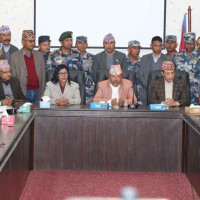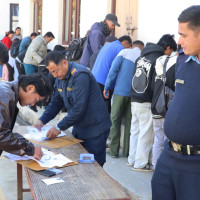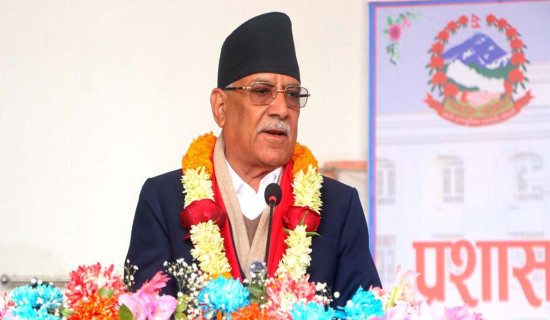- Saturday, 17 January 2026
Escalating Migration
Widespread unemployment, lack of economic opportunities and unequal distribution of resources have worked as the push factor for youths to migrate for jobs to foreign countries. Every day hundreds of citizens leave the country, hoping for better prospects abroad to meet their financial dreams. Moreover, the flight of skilled human resources like doctors, nurses, and engineers has caused a brain drain which has an adverse impact in the nation building campaign. It’s a sad fact that the country invests a huge amount to produce such skilled manpower but cannot retain them.
On the other hand, hundreds of Nepali youths are going out of the country as migrant workers in the Gulf countries, Malaysia, Korea, Japan and other European countries. They have different stories to share. The remittances they send home help steer our economy but the country lacks the long-term plan to keep them in the country and mobilise this immense human resource for economic prosperity. Neither does the country properly address the hardships they face during foreign employment.
Youths are the most energetic human resources capable of developing and making the country wealthy. If the youths migrate at this rate, it will hinder the nation's development in the long run. We can witness two trends of migration in Nepal. On one hand, people from rural areas are migrating to the urban centres, and our villages are being deserted. On the other, youths who go abroad for further education seldom return home, making the country face the shortage of experts in different fields.
As per a news report published in this daily, in the span of past six years, a total of 54,764 youths from Dhankuta went abroad as migrant workers. Of them, 48, 437 were men and 6,327 women. This makes up one-third of the total population of the district. This is just a representative data collected in a district. Such is the situation of the whole country. As per another news report, extreme water shortage and terror of wild boar have forced the villagers of Kot Gaun Khotang to relocate to safer places.
Once thriving with seasonal crops like maize, millet, finger millet and lentils, the village's farmland now lies barren, some overgrown with invasive weeds. It has raised concerns regarding the possibility of food shortage. Migrating to urban areas leads to a decline in agricultural activities, which in turn causes shortfall in agro production. So the migration both internal and external levels has spiral effects. We frequently come across news of menace of monkeys that destroy maze and other cultivated crops. The villages are being deserted at an alarming rate and as a result, the monkeys have invaded the cultivatable land. It has led to a demographic decline in the village, it has created challenges for rural areas in terms of population decline, economic down turn and cultural erosion.
The country is producing graduates every year. However, the lack of job opportunities within the country may sooner or later drive them towards the labour markets abroad. So the country should have concrete plan to check the migration of youths. Likewise, it should also be able to check the migration from rural areas to cities, for the balanced and decentralised development of the country.

















